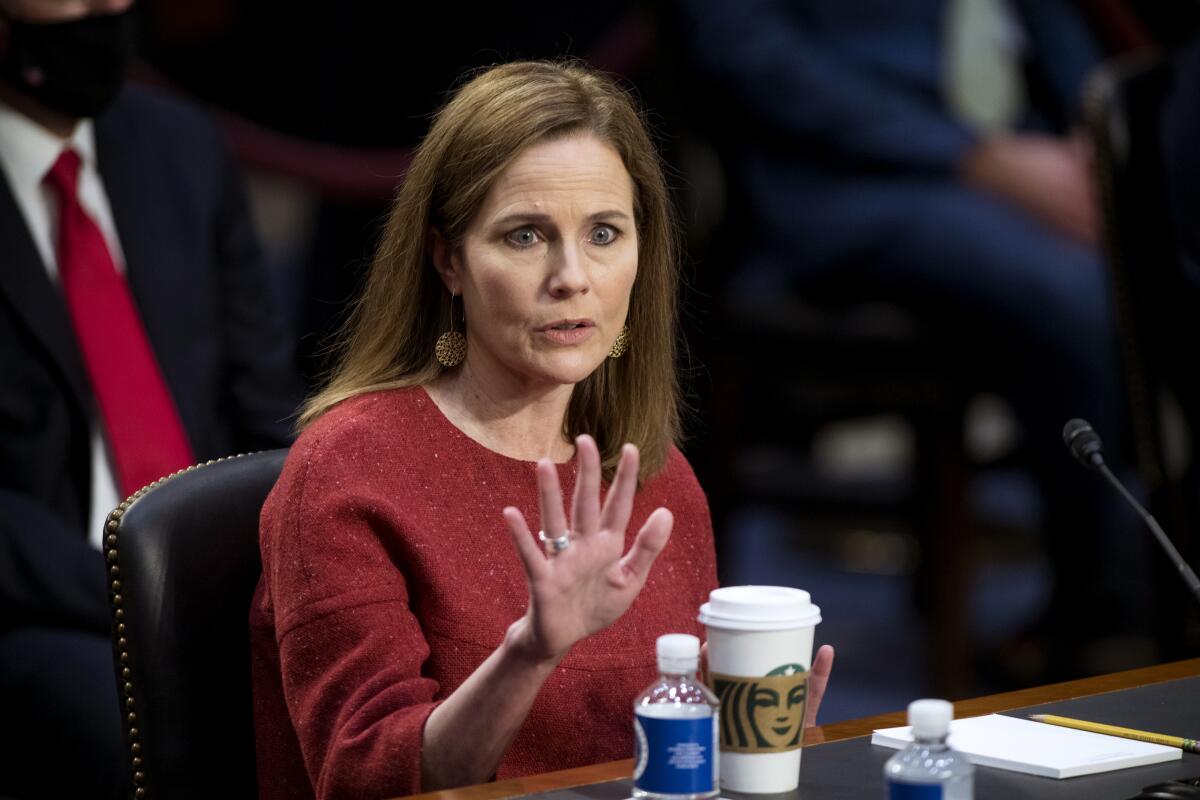Letters to the Editor: Catholics value dispassionate reasoning. Our courts could use more of that

- Share via
To the editor: Charlotte Allen’s argument about the soon-to-be Roman Catholic supermajority on the Supreme Court is spot on. That Catholics will hold six of nine Supreme Court seats should not raise concerns.
The predominance of Catholics on the court (now that the prejudice has been mostly eliminated) is based on education in the church that predisposes its members to very reasoned logical thinking based on accepted assumptions. Once certain assumptions are accepted, then one can be compelled to arrive at a certain conclusion.
At its roots, this is Christian theological thinking. It is based on the writings of numerous medieval philosophers, with their proofs of the existence of God, and from which we deduce proper conduct.
This way of thinking is not a sole possession of Catholics, but it is well established in the church’s educational institutions. This is very much what propels our laws, a fact that can be troubling in today’s culture, where strongly emotional reasoning dominates and the acceptance of an argument rests on its popularity.
Jack Kaczorowski, Los Angeles
..
To the editor: As a UC Berkeley Law school-educated lawyer who belongs to the Episcopal Church, I disagree completely with Allen’s argument that the Supreme Court is dominated by Catholics because the Catholic Church’s theological traditions breed lawyers.
As it happens, I know probably hundreds of lawyers who are not Catholic. They tend to skew atheist.
The reason for the Catholic domination is simple: Republicans appointed most of them, and it is among Catholics that they could find a large pool of lawyers who oppose abortion.
Erica Hahn, Monrovia
..
To the editor: Allen’s column on a Catholic takeover of the Supreme Court completely ignores the large cadre of atheists and agnostics who are one of the larger minority groups in the U.S.
Don’t we deserve representation on the court?
Norman Scott, Joshua Tree
..
To the editor: The time is never right for mixing religion and politics.
True, one’s religion, upbringing, education and experiences shape one’s beliefs and values. But the Supreme Court, as with all courts, is obligated to weigh judgment in each case based on the law, never on religious beliefs.
I am appalled that someone like Allen with a doctorate would ever let her religious beliefs enter into judgment of any living creature.
Marcia Barnett, Long Beach
More to Read
A cure for the common opinion
Get thought-provoking perspectives with our weekly newsletter.
You may occasionally receive promotional content from the Los Angeles Times.










